This post may contain affiliate links. If you make a purchase through a link, I may receive a small commission, at no cost to you. These commissions help keep this website up and running, and I thank you for your support. Read my full disclosure here.
I am not a medical professional. Always consult with your doctor before starting any treatments.
OK, it’s winter time again, so here comes the cold and flu season. There is nothing more frustrating than becoming debilitated by a cold or flu and which can drag on for weeks. It is even more frustrating when you find yourself getting sick over and over again. A few years ago, my husband and I moved from a sunny, subtropical country to the very seasonal United Kingdom. Despite getting the flu shot during our first two winters in the UK, my husband continually had a cold orthe flu, one after the other. Although I didn’t catch all of them, it had an impact on my health, too. Like most people, our response was to take as many pharmaceuticals as possible to mask the symptoms. However, although it eased the pain and discomfort of cold and flu symptoms, it didn’t help prevent or treat the illness. Determined to break the cold and flu cycle, I spent time researching and trialling natural methods to both prevent and reduce the duration of illness.
What is a Cold and the Flu?
The flu is short for influenza, which is a contagious respiratory illness caused by the viruses A and B. Colds are a mild viral infection of the nose, throat, sinuses and upper airways. You can get both the cold and flu all year round, but it is more common in winter when cold air is stable and low humidity also helps the virus particles remain in the air.
The cold and flu are spread by sneeze or cough droplets from an infected person, which can travel up to one metre through the air and last up to 24hrs on a surface. Both the cold and flu have similar symptom,s which can include fever, aches and pains, headache, mucus, cough, fatigue and sore throat. However, the flu’s symptoms are more severe than the common cold and last longer.
The first line of defence against the flu is the flu vaccine. However, it won’t stop all flu viruses, and the level of protection may vary, so its protection is not 100%. To get through winter with as little (or no) illness as possible, follow my guide to natural cold and flu prevention and treatments.
Cold and Flu Prevention
A healthy diet and lifestyle are essential for keeping your immune system in good shape. There are some obvious factors that you need to try and stick to, i.e. don’t smoke, as it can weaken your immune system and make you more prone to infection, particularly respiratory ones, and try and eat food and drink alcohol in moderation. However, here are some additional essential key tips to prevent cold and flu.
Hygiene
Regularly Wash Your Hands
The key to preventing colds and flu is good hygiene. That includes regularly washing your hands, especially before eating or touching your face, eyes and mouth. You should also get in the habit of washing your hands as soon as you arrive home.
Most people don’t actually wash their hands properly and just quickly rinse their hands under water. So, follow these hand washing instructions:
- Rinse your hands with clean water.
- Apply soap and lather your hands all over, making sure that you wash between your fingers, the back of your hands and around your fingernails.
- Wash for 20 seconds – about how long it takes you to sing ‘Happy Birthday’ – then rinse the soap off and dry with a clean towel or paper towel.
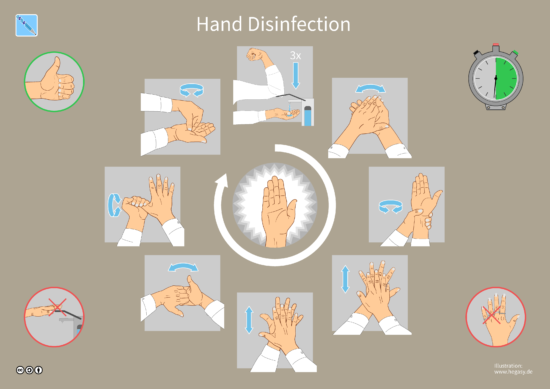
Keep Surfaces Clean
We usually contract cold and flu at work, especially in this day and age where ‘hot desking’ is commonplace. Keep disinfectant cleaning wipes handy and when you sit down to use a desk, wipe the desk surfaces clean, including keyboards and phones. If you are feeling unwell, then do the right thing for the person using the desk after you and clean it upon departing.
Build Up Your Immune System
In order to prevent colds and flus, you need to build a strong immune system.
Exercise
Regular, moderate-intensity physical activity has been shown to help protect people against some diseases, particularly cold and flu, which affect the upper respiratory tract. It can speed up the cells in your immune system that fight off bacteria. It also reduces stress levels, which in turn boosts your immunity. All you need to do is walk briskly for half an hour each day or find time to hit the gym a few times every week. Studies have also shown that people who exercise take half as many sick days per year as those who don’t!
Prebiotic and Probiotic Diet
There is a huge range of bacteria living in our body that are essential to our health, most of which live in our digestive system. In fact, the GI tract is home to over 100 trillion microorganisms that live inside of us! The good bacteria in our gut help to protect us from the bad bacteria. However, due to a range of reasons including diet, smoking, alcohol consumption, antibiotics, and stress, the bad bacteria can end up outweighing the good. When this happens, it can have a direct impact on our health and affect our immunity.
Probiotics are the good bacteria that live in your gut. It helps your gut to function, but in order to survive, they need to feed on prebiotics, which are indigestible plant fibres that live inside our large intestine. In order to get enough of these in our gut, we must eat a diet rich in prebiotics and probiotics. You can learn more about prebiotics and probiotics in my post Prebiotics and Probiotics: What Are They and How Do They Affect My Health?
However, if, like me you struggle to get enough pre and probiotics into your diet (I also have IBS, which makes it even more difficult for me. Learn more about How I Used Prebiotics and Probiotics to Improve My IBS & Well-Being), you can also take supplements:
Prebiotic – A popular form of prebiotic supplement is inulin (FOS). This is typically sold in the form of chicory root powder. I use Organic Chicory Root Powder. It easily dissolves into food or water and is tasteless.
Probiotics – I use Bio Kult Probiotics because it contains 14 strains of probiotics with a variety of both Lactobacillus and Bifidobacterium. Each capsule contains a minimum of 2 billion microorganisms.
Eat Garlic
Garlic is a prebiotic and studies¹ ² have shown that regularly eating garlic may help prevent the common cold or flu.
Here are a few ways to maximise the health benefits of garlic:
- Crush or slice all your garlic before you eat it. This increases the allicin content.
- Before you cook with your crushed garlic, let it stand for 10 minutes.
- Use a lot of garlic — more than one clove per meal, if you can.
I personally love garlic and can’t get enough of it. I even grow it in my garden. However, if you don’t enjoy eating garlic, then don’t worry, you can just take an odourless garlic supplement instead.
Fish Oil
Fish oil is rich in omega-3, something our bodies don’t produce naturally but is important for maintaining good health. There are two main types of omega-3 fatty acid, these are EPA (eicosapentaenoic acid) and DHA (docosahexaenoic acid). Omega 3 fatty acids are known to boost our immunity by increasing the number and activation of T-cells in our body. These T-cells patrol our bodies for potential threats in the form of bacteria, viruses and fungi.
To maintain a healthy immune system, get your omega 3 by eating fatty fish like salmon, mackerel, herring, lake trout, and sardines. However, if, like me, you don’t get enough fatty fish in your diet, then take two fish oil tablets per day that contain both EPA and DHA to help support your immune system. When choosing fish oil, look for one that is burpless, as some of them can give you fishy burps! If you don’t eat fish, then you can get plant based EPA and DHA from algae capsules.
Vitamins and Minerals
Maintain Your Levels of Vitamin D
We get vitamin D from the sun and through our diet. However, in the winter months (and even through a miserable summer), we don’t get enough sun. Although vitamin D is found in foods such as oily fish, eggs, and fortified breakfast cereals, getting the recommended 10 micrograms of vitamin D per day can be a real challenge. Research³ ⁴ indicates that more than 1 in 5 of us experience vitamin D deficiency and that this makes us more susceptible to acute respiratory tract infections like colds and flu.
If you are concerned about your vitamin D levels, then visit your GP to arrange a blood test to check your levels. Your GP will then be able to recommend an appropriate dosage for a vitamin D supplement, which will help protect you from infection.
Zinc
Zinc is a mineral that has been promoted for many years as being able to boost the immune system. Research⁵ has shown that regular supplementation of zinc for at least five months can protect you against catching colds. You can increase your zinc intake by either taking zinc supplements or eating foods that are high in zinc, such as oysters, beef, lamb, spinach, pumpkin seeds, squash seeds, nuts, dark chocolate (yay!), pork, chicken, beans, and mushrooms. Aim for 15mg of zinc each day.
Warning: For some people, taking zinc can cause nausea. If you are prone to suffering side effects, then focus on increasing your intake of zinc rich foods.
Maintain Good Mental Health
Good mental health is a crucial factor in maintaining a healthy immune system. For example, the stress hormone corticosteroid can suppress the effectiveness of our immune system, leading to us being more vulnerable to cold and flu. If you are someone who struggles with a healthy mind, body and soul, then consider coping strategies that could improve your mental health, such as counselling, meditation and cognitive behavioural therapy.
Nasal and Sinus Health
Keeping your nose moist can prevent sickness. The nose and sinuses are lined with a mucous membrane, which has small hairs in it called cilia. These cilia help to keep the sinuses clean, but they need to be moist to work effectively. When the membranes dry out, not only do the cilia not work as well, but any trapped infectious mucus or debris is harder for the cilia to remove. That’s when we end up with nasal crusting and sinus infections.
During winter, when we turn the heating on, the air can get really dry, which in turn dries our noses out. Humidity should be around 40% for nasal and sinus health, so consider using a humidifier to keep your nose and sinuses moist. It also has the bonus of preventing your skin from drying out too. This lightweight Cool Mist Personal Mini Humidifier can run on USB or Battery and can be used with standard water bottles. Keep one on your desk at work and one beside your bed at night. I’m a really bad mouth breather, and regularly wake up during the night with really dry mouth and lips, but having a humidifier by my bed alleviates this, as well as helping to prevent me from getting cold and flu.
How to Stop Colds and Flu in Their Tracks
The key is to act fast, so you must be in tune with your body and be sensitive to the early signs of a cold and flu. For example, I can get a persistent tingling sensation in my nose, and it can get watery. I can also get a scratchy throat and/or a headache in my forehead. As soon as I begin to feel any of these early symptoms, I immediately start on these treatments. Most of the time, I can actually stop it in its tracks and prevent it from developing any further. However, on those occasions where it does develop into a full-blown cold or flu, these treatments can significantly reduce the duration of my illness.
Salt nose spray
My Nana always snorted salt water to clear her blocked sinuses. Thankfully, these days you can buy it in an easy to use nose spray, which also makes it much easier to use with children. Salt nose spray is an effective way to clear up nasal and throat symptoms. Research⁶ has shown saline spray improves nasal breathing, sore throat, and the amount of nasal secretions compared with those who don’t use it. It also reduces your need to use nasal decongestants and medications to break down mucus and can reduce the length of your illness.
Sometimes, before my body launches into a cold, I get a funny tingling, buzzing ‘warning’ in my nose. So as soon as I get this symptom, I start using the salt nose spray. This and the other treatments I launch into when this happens (as noted in this post), can prevent it from progressing into a cold.
ColdZyme Mouth Spray
ColdZyme Mouth Spray is sprayed directly into the back of your throat to form a protective barrier against the cold virus. The key to this spray is an enzyme called trypsin, which reduces the virus’s ability to bind to the cells in the mucous membrane and cause illness. The healing properties of trypsin were discovered by an Icelandic scientist in the 1970’s, when he noticed that employees of a fish-cleaning plant had unusually soft and undamaged hands despite cleaning fish all day. Research⁷ has shown that certain cold-adapted marine organisms contain trypsin, which has good healing properties. The good news is that this enzyme is extracted as a by-product of cod processing, so it does not create an additional load on the marine ecosystem.
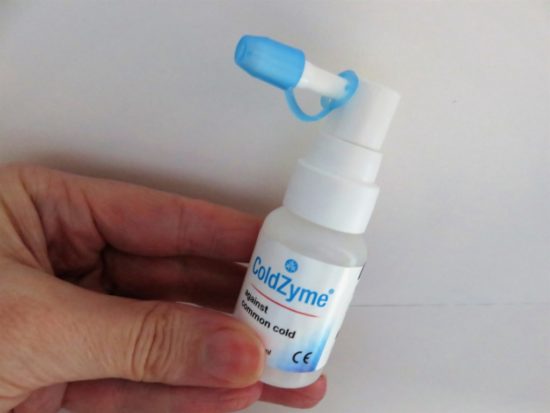
In addition to preventing a cold, research has shown that ColdZyme Mouth Spray also shortens its duration. My husband and I began using this last winter on our local pharmacist’s recommendation. It has a pleasant, sweet taste and is very easy to use. We thought it was a great natural prevention to use at work when surrounded by sick co-workers, and also at home to protect ourselves if one of us got sick.
Vitamins and Minerals
Multivitamins
When you feel the onset of cold and flu symptoms, take a daily multivitamin until the symptoms clear. In this day and age, our diets usually aren’t that great, so a short-term use of a multi-vitamin supplement can support your immune system with any essential vitamins and minerals that you may be deficient in.
Many people believe that vitamin C can prevent or treat cold symptoms, but overall, research has found little to no benefit from vitamin C for preventing or treating the common cold. In addition, long-term daily use of multivitamins is not recommended. Vitamins A, E and K are stored in the liver and fat tissues, and if you take too much, they can accumulate in the body and could lead to hypervitaminosis (vitamin poisoning). On the other hand, vitamins B and C, if not used, your body just pees out, so taking more vitamins than you need is just a waste of money, as you are quite literally flushing it down the toilet or making yourself sick! So, only temporarily use them to support your immune system when you are preventing or treating illness.
Zinc
Zinc is a mineral that has been promoted for many years as being able to boost the immune system. Laboratory studies⁵ have found that it can inhibit the replication of the rhinovirus, which is the most frequent cause of cold symptoms. It’s important to begin taking zinc supplements within a day of developing symptoms of a cold to reduce its duration, so make sure you have some in your cupboard on standby.
Echinacea
Echinacea doesn’t prevent a cold, and there is conflicting scientific research about whether⁸ or not⁹ it can reduce the severity and duration of a cold¹⁰. However, if you do decide to try it for yourself, then ensure the preparation you take is from the Echinacea purpurea, as this is the type of Echinacea used in the studies that found positive results. In addition, only take it for a maximum of eight weeks, as it is only safe to use for short periods.
Olive Leaf
The olive tree has been used for thousands of years as a folk remedy for treating fevers, wounds, and infection. Olive leaf contains an ingredient called oleuropein (pronounced oh-lee-or-oh-pin), which has proved to be a powerful antioxidant and antimicrobial. Recent scientific research has shown that oleuropein is effective against every cold and flu virus it has been tested against. Oleuropein may also have antibacterial properties.
Research is limited, but so far results are positive in olive leaf’s cold and flu-fighting ability. You can buy olive leaf extract as a liquid or in capsule form. The liquid is a deep black colour and has a very strong bitter taste. Personally, I just can’t stand the taste of it, so instead I go for the capsules.
Black Elderberry
Black elderberry extract has traditionally been used to ease cold and flu symptoms, sinus problems, fevers, and muscle pain. The berries contain chemical compounds called anthocyanidins, which are known to have immune boosting effects. Recent studies¹¹ ¹² show that black elderberry extract can reduce the duration and symptoms of cold and flu, and that it is highly effective in mitigating flu-like symptoms due to the flavonoids binding to the H1N1 human influenza virus. In addition, black elderberries’ anti-inflammatory and antioxidant properties will help to clear sinus infections.
You can take Black Elderberry as a syrup or capsules. To gain maximum flu and cold fighting benefit from black elderberry extract, it is important that you begin taking it within the first 48 hours of the onset of cold and flu symptoms. Read my comparison of Natures Answer Sambucus versus Sambucol Black Elderberry liquid.
You can even make your own syrup using the directions in the video below.
Hydration
Water
It is really important to stay hydrated when you have a cold or the flu, because symptoms like runny noses and sweating, which often accompany fever, increase the amount of water your body loses. If you don’t drink enough to compensate for this water loss, you will get dehydrated.
Water is crucial because it is required for every function of the body. Staying hydrated enables the body to function properly and defend itself more effectively against cold and flu. It also helps to loosen mucus in your nose and relieve congestion. So, drink plenty of fluid to ensure a speedy recovery.
Lemon, Honey, and Ginger Drink
It always surprises me when I see people drinking Lemsip because I think it tastes terrible and is just artificial flavouring mixed with some paracetamol and decongestant. Also, vegetarians and vegans may not know that many of the Lemsip products are not vegetarian.
Making your own honey and lemon drink tastes so much better and is much more beneficial for your health. It also helps to soothe a sore throat. Here is an easy recipe:
Ingredients:
- Juice of half a fresh lemon
- A generous helping of honey (about 2 tablespoons), preferably Manuka (see below)
- ½ inch of freshly grated ginger (optional)
Directions:
- Place all ingredients in a mug and add boiling water.
I recommend adding freshly grated ginger because it contains antibacterial and antiviral properties which deal with the flu virus. In addition, the analgesic and anti-inflammatory properties heal the pain, irritation and discomfort caused by flu. It can also reduce body fever and loosen mucus. Lemsip also contains paracetamol and a decongestant, so if you need to, just take these medications in tablet form alongside it (which is much cheaper!).
[icon name=”exclamation-triangle” class=”” unprefixed_class=””] Warning: Don’t consume more than 4 grams of ginger per day.
If you use New Zealand Manuka honey, it is also a medical grade antibacterial. As a New Zealander, I grew up with manuka honey and love it not only for its delicious taste but also because of its healing properties. If you prefer, you can just take it by the spoonful instead of making it into a drink. Manuka honey has a considerably higher level of enzymes than regular honey. These enzymes create a natural hydrogen peroxide, methylglyoxal and dihydroxyacetone that work as an antibacterial. These three key ingredients are referred to as the Unique Manuka Factor (UMF), a global standard in identifying and measuring the antibacterial strength of Manuka. It is not considered beneficial unless it carries a UMF 10+ level of antibacterial activity. As not all Manuka honey contains this level of UMF, when purchasing it, it is important to look for the following:
- UMF trademark is clearly labelled on the front of the container.
- It will be from a New Zealand UMF licensed company and labelled in New Zealand.
- It will have the UMF company’s name and license number on the label.
- It will have a UMF rating of 10+. If it is labelled without the UMF or without a number, then it is not the genuine article.
Soup
Clear soups and broths can provide nourishment when you may not have much of an appetite. They are also easier to consume than a meal when your throat is inflamed. Some research shows they may help relieve inflammation, but even if this is not true, soup is a great way to hydrate and nourish your body. The warmth also helps to break up mucus.
Hygiene
Tissues Not Hankies
OK people, if you are sick with a cold or flu and are blowing your virus-infused nasal secretions onto a hanky and carrying it about with you and using it again and again until it is too wet to be any further help, you are increasing the chance of spreading your virus to others! Replace your hankies with tissues and throw them in the bin along with the virus and mucus.
If you are intent on using hankies, then make sure you change them regularly and give them a good wash in hot, soapy water.
And… the most important point. Make sure you wash your hands after blowing your nose, whether you are using tissues or hankies.
Don’t Spread It
If you have a cold or the flu, you mustn’t spread it to those around you. Wash your hands regularly and ensure that you clean the surfaces that you’ve been touching. If you sneeze, cover your mouth, as those tiny droplets can travel metres and infect others. If you don’t have a tissue to sneeze into, then it is recommended you sneeze into the bend of your elbow. Then, when you touch things, it’s not covered in your infected droplets!
References
¹Adv Ther. 2001 Jul-Aug;18(4):189-93. Preventing the common cold with a garlic supplement: a double-blind, placebo-controlled survey. Josling P1.
²Clin Nutr. 2012 Jun;31(3):337-44. doi: 10.1016/j.clnu.2011.11.019. Epub 2012 Jan 24. Supplementation with aged garlic extract improves both NK and γδ-T cell function and reduces the severity of cold and flu symptoms: a randomized, double-blind, placebo-controlled nutrition intervention. Nantz MP1, Rowe CA, Muller CE, Creasy RA, Stanilka JM, Percival SS.
³Vitamin D supplementation to prevent acute respiratory tract infections: systematic review and meta-analysis of individual participant data. BMJ 2017; 356 doi: https://doi.org/10.1136/bmj.i6583 (Published 15 February 2017). Cite this as: BMJ 2017;356:i6583
⁴Rode von Essen M, Kongsbak M, Schjerling P, et al. Vitamin D controls T cell antigen receptor signaling and activation of human T cellsNature Immunology 2010; published online March 7 2010
⁵Zinc for the common cold. Cochrane Database of Systematic Reviews 2011, Issue 2. Singh M, Das RR (http://onlinelibrary.wiley.com/o/cochrane/clsysrev/articles/CD001364/frame.html)
⁶lapak I, Skoupá J, Strnad P, Horník P. Efficacy of Isotonic Nasal Wash (Seawater) in the Treatment and Prevention of Rhinitis in Children.
⁷Clarsund et al, Common cold prophylaxis using ColdZyme Mouth Spray, Congress of the Nordic Association of Otolaryngology Copenhagen 2014.
⁸Jawad M, Schoop R, Suter A, Klein P, Eccles R. Safety and Efficacy Profile of Echinacea purpurea to Prevent Common Cold Episodes: A Randomized, Double-Blind, Placebo-Controlled Trial
⁹Echinacea for preventing and treating the common cold. Cochrane Database of Systematic Reviews 2006, Issue 1. Linde K, Barrett B, Bauer R, Melchart D, Woelkart K (http://www2.cochrane.org/reviews/en/ab000530.html)
¹⁰Echinacea for treating the common cold. Annals of Internal Medicine. 2010; 153: 769-777. Barrett B, Brown R, Rakel D, et al (http://www.annals.org/content/153/12/769.abstract)
¹¹Zakay-Rones Z, Varsano N, Zlotnik M, Manor O, Regev L, Schlesinger M, Mumcuoglu M. Inhibition of several strains of influenza virus in vitro and reduction of symptoms by an elderberry extract (Sambucus nigra L.) during an outbreak of influenza B Panama. J Altern Complement Med. 1995 Winter; 1(4):361-9.
¹²Nutrients. 2016 Apr; 8(4): 182. Published online 2016 Mar 24. doi: 10.3390/nu8040182 PMCID: PMC4848651 Elderberry Supplementation Reduces Cold Duration and Symptoms in Air-Travellers: A Randomized, Double-Blind Placebo-Controlled Clinical Trial. Evelin Tiralongo, Shirley S. Wee, and Rodney A. Lea

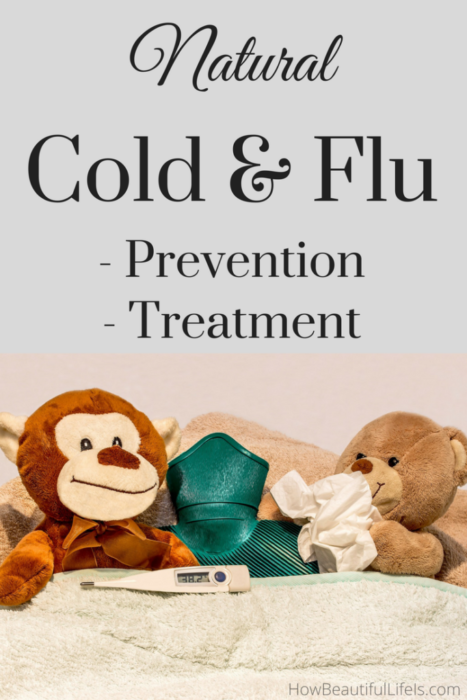
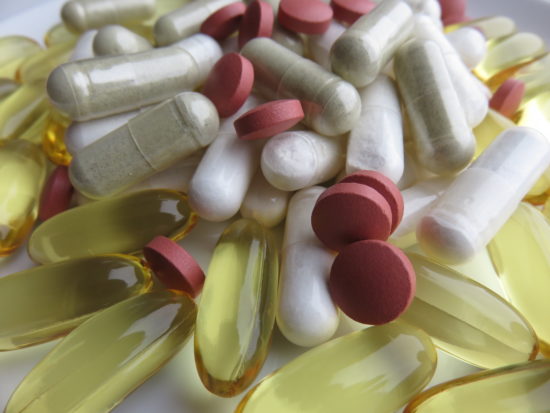
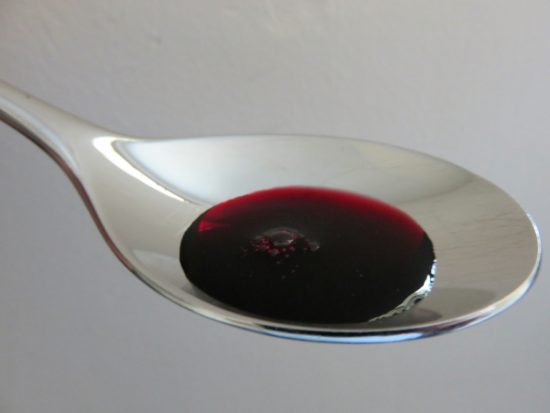
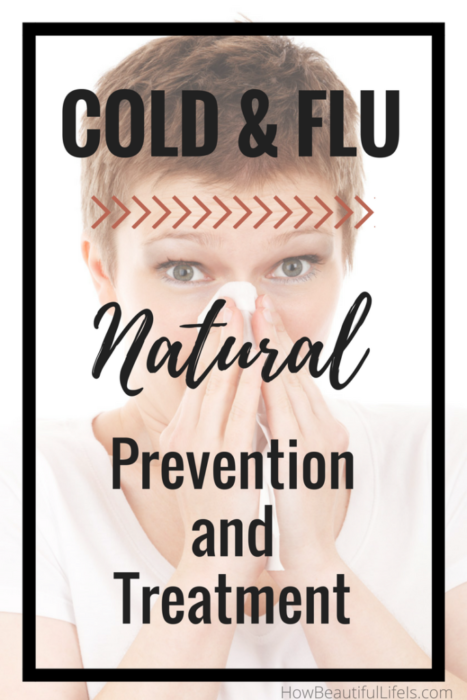
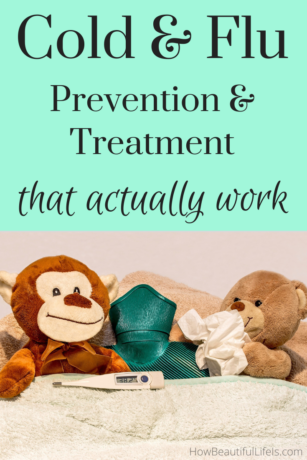
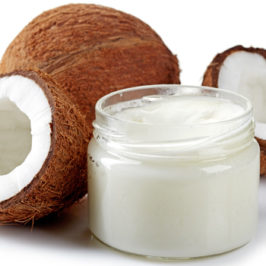
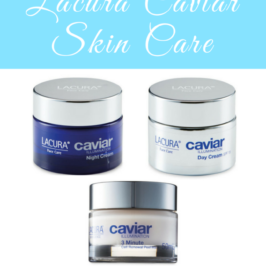

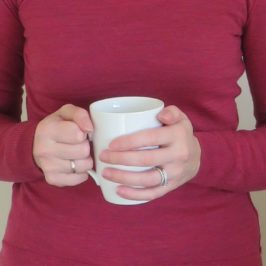
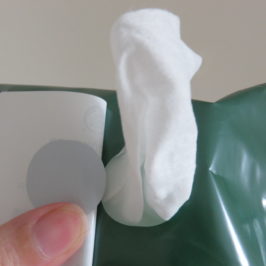
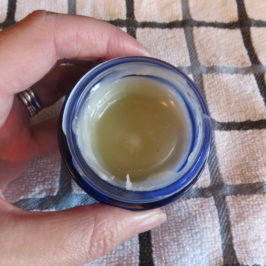
Leave a Reply